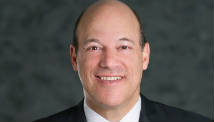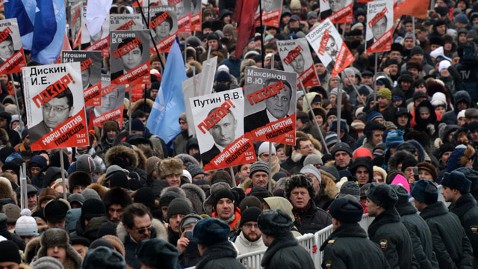Lance Armstrong over the years
Lance Armstrong over the years
Lance Armstrong over the years
Lance Armstrong over the years
Lance Armstrong over the years
Lance Armstrong over the years
Lance Armstrong over the years
Lance Armstrong over the years
Lance Armstrong over the years
Lance Armstrong over the years
Lance Armstrong over the years
Lance Armstrong over the years
Lance Armstrong over the years
Lance Armstrong over the years
Lance Armstrong over the years
Lance Armstrong over the years
Lance Armstrong over the years
Lance Armstrong over the years
Lance Armstrong over the years
Lance Armstrong over the years
Lance Armstrong over the years
Lance Armstrong over the years
Lance Armstrong over the years
Lance Armstrong over the years
Lance Armstrong over the years
Lance Armstrong over the years
<<
<
1
2
3
4
5
6
7
8
9
10
11
12
13
14
15
16
17
18
19
20
21
22
23
24
25
26
>
>>
STORY HIGHLIGHTS
- Armstrong didn't address steroids during tearful apology, spokeswoman says
- Disgraced cyclist is sorry work is stressful for those at Livestrong, she says
- Armstrong has agreed to 90-minute interview with Oprah Winfrey
- Armstrong is expected to talk about doping allegations, her network says
(CNN) -- Just hours before he was to tape an interview expected to address allegations of performance-enhancing drug use, disgraced cycling legend Lance Armstrong apologized to the staff of the cancer charity he started, a publicist for the charity -- Livestrong -- said.
Armstrong was tearful during the 15-minute meeting and didn't address the issue of steroid use in cycling, Rae Bazzarre, director of communications for the Livestrong Foundation, said.
Bazzarre added that Armstrong offered a "sincere and heartfelt apology for the stress they've endured because of him."
He urged them to keep working hard to help cancer survivors and their families.
Armstrong is scheduled to sit down in his hometown of Austin, Texas, with talk show queen Oprah Winfrey on Monday for his first interview since he was stripped of his seven Tour de France titles in a blood-doping scandal.
Read more: Oprah interview with Lance Armstrong airs January 17
For decades Armstrong has denied he used performance-enhancing drugs or doped, but he was linked to a doping scandal by nearly a dozen other former cyclists who have admitted to doping.
What Armstrong says or does not say to Winfrey can have ramifications.
Some media outlets have reported that Armstrong has been strongly considering the possibility of a confession, possibly as a way to stem the tide of fleeing sponsors and as part of a long-term redemptive comeback plan.
But such a confession might lend weight to the lawsuits that could await him.
The interview will not air until 9 p.m. ET Thursday on the Oprah Winfrey Network. But the speculations swirled Monday.
"I don't think we're going to get an out-and-out confession," says CNN sports anchor Patrick Snell. "I think we're going to get something like, 'This is what went on during this era of trying to compete at the highest level.'"
Snell cautions, though, that a confession may not come at all.
Armstrong, 41, has repeatedly and vehemently denied that he used banned performance-enhancing drugs as well as illegal blood transfusions during his cycling career.
Winfrey will ask Armstrong to address the U.S. Anti-Doping Agency's October report, which said there was overwhelming evidence he was directly involved in a sophisticated doping program, a statement from her network said last week.
The International Cycling Union, which chose not to appeal the USADA's lifetime ban, stripped Armstrong of his record seven Tour victories.
The World Anti-Doping Agency also agreed with the sanctions, which means Armstrong may not compete in sports governed by that agency's code.
Before the ban, he was competing in Ironman triathlons and had won two of the five events he had entered.
Since the ban he has entered two non-sanctioned events.
Report: Armstrong offered to donate $250,000 to anti-doping agency
Why now?
So, why might Armstrong choose to make a confession now?
"I would suspect that he sees this as certainly his best way forward," Snell says. "He would have taken strong legal advice, of course. When you look at the kind of stuff that Oprah's done over the years, it's a chance to get ... heartfelt emotions across."
The New York Times has reported that Armstrong was contemplating publicly admitting he used illegal performance-enhancing drugs. Such an admission might lead toward Armstrong regaining his eligibility.
One of his attorneys denied Armstrong was in discussion with the two anti-doping agencies.
Attorney Tim Herman, in a recent e-mail to CNN Sports, did not address whether Armstrong told associates -- as reported by the newspaper -- that he was considering an admission.
But such an admission could open him up to lawsuits, something Armstrong is likely well aware of.
"He is surrounded by the best legal advice, the best legal team," Snell says. "It's very hard for anyone to imagine him going into this without having been fully briefed, made aware of absolutely every scenario."
Winfrey has promised a "no-holds-barred" interview, with no conditions and no payment made to Armstrong.
Drug tests
In the past, Armstrong has argued that he took more than 500 drug tests and never failed.
In its 202-page report that detailed Armstrong's alleged use of performance-enhancing drugs and blood transfusions, the USADA said it had tested Armstrong less than 60 times and the International Cycling Union conducted about 215 tests.
The agency did not say that Armstrong ever failed a test, but his former teammates testified as to how they beat tests or avoided the tests altogether.
The New York Times, citing unnamed associates and anti-doping officials, said Armstrong has been in discussions with USADA officials and hopes to meet with David Howman, chief of the World Anti-Doping Agency. The newspaper said none of the people with knowledge of Armstrong's situation wanted to be identified because it would jeopardize their access to information on the matter.
Under World Anti-Doping Agency rules, an athlete who confesses to using performance-enhancing drugs may be eligible for a reinstatement.
Awaiting Armstrong's 'last word'
Armstrong: The legend and the fall
Armstrong has been an icon for his cycling feats and celebrity, bringing more status to a sport wildly popular in some nations but lacking big-name recognition, big money and mass appeal in the United States.
He fought back from testicular cancer to win the Tour from 1999 to 2005. He raised millions via his Lance Armstrong Foundation to help cancer victims and survivors, an effort illustrated by trendy yellow "LiveSTRONG" wristbands that helped bring in the money.
But Armstrong has long been dogged by doping allegations, with compatriot Floyd Landis -- who was stripped of his 2006 Tour de France title after failing a drug test -- making a series of claims in 2011.
Armstrong sued the USADA last year to stop its investigation of him, arguing it did not have the right to prosecute him. But after a federal judge dismissed the case, Armstrong said he would no longer participate in the investigation.
In October 2012, Armstrong was stripped of his titles and banned from cycling. Weeks later, he stepped down from the board of his foundation, Livestrong.
It is unclear whether Armstrong would face criminal prosecution for perjury should he confess. Armstrong was involved in several cases where he gave sworn testimony that he never used banned drugs.
Kurtz: Can even Oprah save Lance Armstrong?
CNN's Steve Almasy Jillian Martin and Chelsea J. Carter contributed to this report.

















